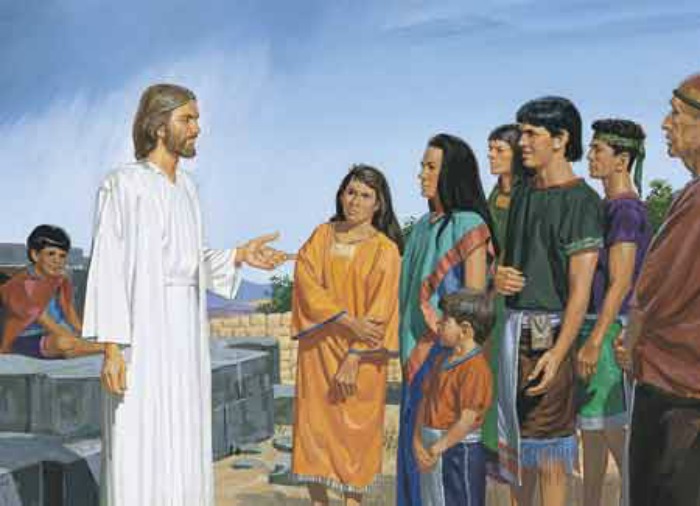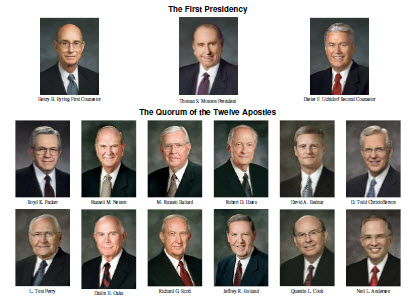Hi
Why is the name of our Savior written and transliterated from the Hebrew scriptures as “YAHWEH.” What is the connection to Jesus and Yashua. I understand that there is a great importance in a name. My understanding is that the “J” sound was part of the Greek alphabet. That at the time the scriptures were written, and the Father told Moses the Name to take back to the people, Hebrew was the language used. Why has the name changed?
Doesn’t Yahweh have significance towards the word Father, and Yashua as Son and Savior?
I am presently reading 3rd Nephi. I mean no harm to The LDS Church, for I have loved ones in the Castle Rock Ward and respect Bishop Davis and the Council. My research has been part of a long journey and I only need know that my family and I are on the right path. Sincerely,
W.R.T., from Washington State
Dear W.R.T.
The word, Yahweh, is one way of writing the Hebrew for Jehovah. This word was written without the vowel points-only the four consonants were used. Because of its sacred nature it was not to be pronounced by the Hebrews. Without the vowel points we have no idea how it would have been originally pronounced. “The four consonants are variously written IHVH, JHVH, JHWH, YHVH, YHWH. Numerous attempts have been made to represent the supposed original form, as Jahaveh. Jahvah, Jahve, Javeh. Yahve, Yahveh, Yahwe, Yahweh, etc.” (Joseph Fielding Smith Jr., Doctrines of Salvation, Vol.3, p.120, Notes).
That word is represented in the Old Testament by “Jehovah.” In the Kings James translation of the Old Testament, written in English, except in four locations, the word Jehovah is rendered as LORD, with all the letters capitalized. If only the first letter is capitalized, as Lord, the word is translated from the Hebrew, Adonay, and is a title of respect, not necessarily referring to Deity. As an example, see Genesis 18:1-3, below.
The word Jehovah or LORD in the Old Testament refers to the premortal Lord, Jesus Christ, who is the God of this earth under the administration of the Father. Jehovah represented himself to the ancients as God Almighty, which would refer to the Father. However, he clarified to Moses who he was and by what name he was known. In Exodus 6:3 we read,
And I appeared unto Abraham, unto Isaac, and unto Jacob, by the name of God Almighty, but by my name JEHOVAH was I not known to them.
That Jehovah is indeed the premortal Savior is amply clarified in his words to Zachariah-
In that day shall the LORD defend the inhabitants of Jerusalem; and he that is feeble among them at that day shall be as David; and the house of David shall be as God, as the angel of the LORD before them. And it shall come to pass in that day, that I will seek to destroy all the nations that come against Jerusalem. And I will pour upon the house of David, and upon the inhabitants of Jerusalem, the spirit of grace and of supplications: and they shall look upon me whom they have pierced, and they shall mourn for him, as one mourneth for his only son, and shall be in bitterness for him, as one that is in bitterness for his firstborn. (Zechariah 12:8-11).
In this scripture it is clear that the LORD (Jehovah) is speaking; and referring to himself in both the first and third person, he says, and they shall look upon me whom they have pierced, and they shall mourn for him, as one mourneth for his only son, and shall be in bitterness for him, as one that is in bitterness for his firstborn, clearly identifying himself as the Savior who was to be crucified.
When Jesus was born in mortality to the Virgin, Mary, the angel of the Lord appeared to Joseph and told him that the child should be called Jesus (Matt 1:20-21). But again we are reading the English language bible which was translated from the original Greek. Jesus is a translation of the Greek word Iesous, and Iesous is the Greek translation of the Hebrew Yeshua. The English translation of Yeshua is Joshua. So the Savior was probably called Yeshua by his contemporaries. And had we received the New Testament as a translation from the Hebrew rather than from the Greek, the Savior would probably have been known to us as Joshua the Messiah (from the Hebrew) rather than Jesus the Christ (from the Greek).
In the Book of Mormon the Lord revealed to Nephi some 550 years before the birth of the Savior that he would be called Jesus Christ, the Son of God (2 Nephi 25:19). Again we have a translation problem. Nephi spoke Hebrew, but he recorded his writings in the Egyptian language. So in the plates of the Book of Mormon the inscription for the words, Jesus Christ, was undoubtedly the Egyptian equivalent of Joshua the Messiah. Those Egyptian words written on metal plates by Nephi were translated into English by Joseph Smith, “by the gift and power of God.” It is logical that the English term for Joshua or Yeshua be used in order to give meaning and understanding to the passage in English.
Gramps







